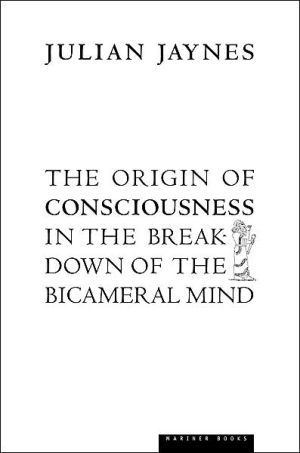The Origin of Consciousness in the Breakdown of the Bicameral Mind
At the heart of this classic, seminal book is Julian Jaynes's still-controversial thesis that human consciousness did not begin far back in animal evolution but instead is a learned process that came about only three thousand years ago and is still developing. The implications of this revolutionary scientific paradigm extend into virtually every aspect of our psychology, our history and culture, our religion—and indeed our future.\ \ \ Fourteen years after its original...
Search in google:
At the heart of this classic, seminal book is Julian Jaynes's still-controversial thesis that human consciousness did not begin far back in animal evolution but instead is a learned process that came about only three thousand years ago and is still developing. The implications of this revolutionary scientific paradigm extend into virtually every aspect of our psychology, our history and culture, our religion—and indeed our future.
FrefacevIntroduction: The Problem of Consciousness1Book IThe Mind of Man1.The Consciousness of Consciousness212.Consciousness483.The Mind of Iliad674.The Bicameral Mind845.The Double Brain1006.The Origin of Civilization126Book IIThe Witness of History1.Gods, Graves, and Idols1492.Literate Bicameral Theocracies1763.The Causes of Consciousness2044.A Change of Mind in Mesopotamia2235.The Intellectual Consciousness of Greece2556.The Moral Consciousness of the Khabiru293Book IIIVestiges of the Bicameral Mind in the Modern World1.The Quest for Authorization3172.Of Prophets and Possession3393.Of Poetry and Music3614.Hypnosis3795.Schizophrenia4046.The Auguries of Science433Afterword447Index471
\ From the Publisher"When Julian Jaynes . . . speculates that until late in the twentieth millennium b.c. men had no consciousness but were automatically obeying the voices of the gods, we are astounded but compelled to follow this remarkable thesis."—John Updike The New Yorker\ \








